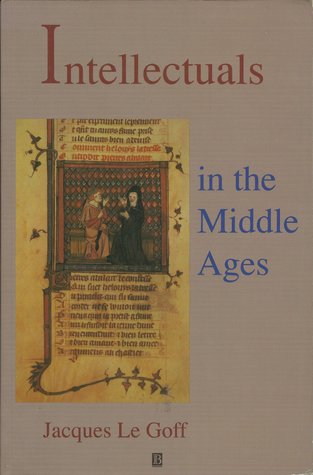
Unlike to what I have been seeing in the world — the intellectual-yet-idiots spanning from India to the UK to the USA who have no skin-in-the-game but some Ivy league and Oxbridge degree labels branded on their bodies; while telling us what to do, what to eat, how to speak, and who to vote for — this book examines the intellectuals in the medieval ages. More particularly, it provides an exegesis of intellectuals who are tinkerers and pompous thinkers sitting in the academy, as well as those humanist laboring with luxe calm et volupte. Translated from the French, by Jacques Le Goff, this book is heavily suffused with French words and names that I am unfamilar with — which made the book look ladened with recondite information, which, of course, it is not! However, despite my modest knowledge of the European intellectuals during medieval ages, the perspicuity in the author’s narration had let me sail through the book effortlessly. This book spans from the birth of the intellectuals in the medieval age to the fall of the intellectual era by the end of the middle age. It seems, from the author’s writing, that the intellectuals in the middle ages were rebellion, goliards who did not concur or succumb to society. Abelard, amongst the other intellectuals, according to the author, although a goliard, is the first intellectual in the medieval age.
The rebellious nature of Abelard becomes noticeable from the lines he wrote of Anslem, the old theologian:
This old man owned his reputation more to his advanced age than to his talent or culture. All those who approached him to have his advice on a subject about which they were uncertain left even more uncertain. […] to this tree, therefore, when I had come that I might gather fruit from it, I understood that it was the fig-tree which the lord cursed.
Abelard in another instance, writes: it was the philistines who kept their knowledge to themselves and prevented both themselves and other from benefiting from it.
It is also noteworthy that the intellectuals in the middle age never quarreled with their ancients in the sense they had no quarrels with their intellect or ideas. Even more so, they read ancients every day.
To my mind, today’s intellectuals, have no skin-in-the-game, and worse, I consider them to be iatrogenesists, while they consider nobles. Yes, nobles unfit for war. They remain dumbfounded at the sight of a child’s book as before a sudden theatrical spectacle, for they are unaware of any damn thing and are nothing but a disguised charlatans, quacks, shills and mountebanks! To put into words of papal legate, Benoit Gaetani: all these idiots imagine they have huge reputation as scholars among us, while I consider them as fools among fools who have infected both themselves and the entire world with their doctrine …